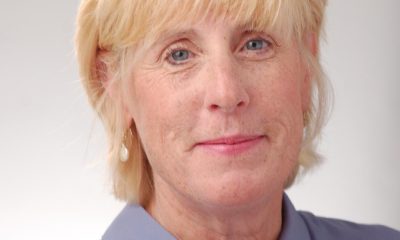Books
Provocative pages
LGBT authors celebrate the written word at this weekend’s OutWrite
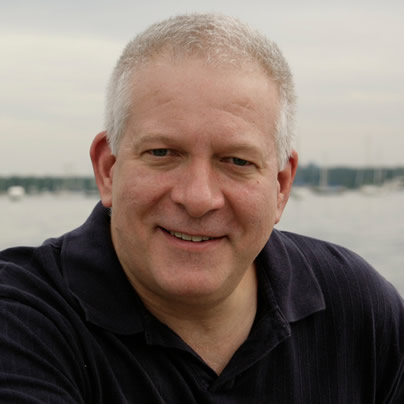

Gay author William Sterling Walker will present his New Orleans-themed short story collection at the OutWrite Book Fair Saturday at 11 a.m. (Photo by Lenora Gim)
OutWrite
LGBT Book Fair
Today through Sunday
Starts Friday evening at 6:30 p.m.
D.C. Center for the LGBT Community
1318 U Street, N.W.
‘Women Write Gay Erotica’
Continues Saturday at the Reeves Center
2000 14th Street, N.W.
Ends Sunday with events starting at 10 a.m.
At the D.C. Center
Visit thedccenter.org for full schedule and details
It would be a mistake to assume that all the authors appearing at this year’s OutWrite LGBT Book Fair are small-time writers who’ve all self-published their work.
Novelist Manil Suri, who will be presenting his adventure novel “The City of Devi,” had his first book “The Death of Vishnu” become a bestseller in several countries that has been translated into 27 languages. Poet Joseph Ross — like Suri, a teacher/professor — had his books published by Main Street Rag Publishing based in Charlotte, N.C., and even though William Sterling Walker’s short story collection “Desire: Tales of New Orleans,” is his first book, it was published by Chelsea Station Editions (which will exhibit at this year’s fair) and his stories have appeared in several magazines and anthologies.
“We got a lot of submissions from folks who want to come read so it’s actually become quite competitive,” says David Mariner, director of the DC Center, which produces the fair, now in its third year. “We were lucky to have [lesbian writer] Julie Enszer on the planning committee this year and she was … very valuable in the process.”
Mariner says in previous years the readings typically attract 30 or 40 people at any given time with a “couple hundred” visiting the fair altogether. It kicks off tonight and runs through Sunday. Saturday the events will be in the atrium at the Reeves Building. Tonight and Sunday, readings will take place at the Center’s current location on U Street. Mariner says the events will not be affected by last week’s announcement about changes to the Reeves Building’s fate, where the Center had been planning to move permanently.
Mariner says “the majority” of this year’s authors have had their work published by traditional publishers but he says that’s less a significant distinction than it may have been several years ago as the industry is changing rapidly.
“It’s a little harder to say now who meets that criteria because the lines have really blurred,” Mariner says. “In fact, that’s one discussion we’re going to have at the fair.”
Ross has been writing poetry since college about 20 years ago. The D.C. resident says his poetry book “Gospel of Dust,” which came out in July, touches on everything from the notion of various riots being somewhat ritualistic in nature and the sometimes unexpected places religious elements are found in everyday life such as in the lives of people like Rosa Parks or Matthew Shepard and even in the work of local graffiti artists.
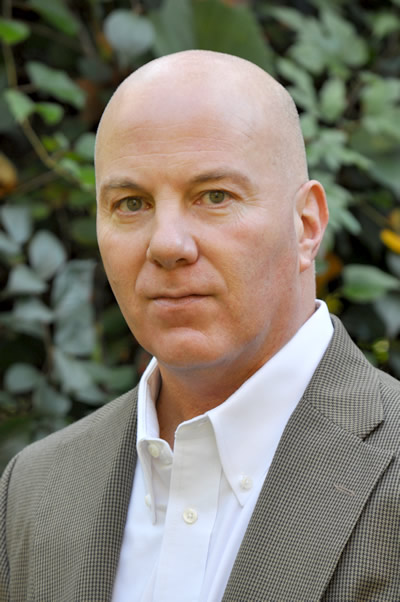
Joseph Ross will read from his poetry collection at 3 p.m. (Ross photo by Ted Schroll)
“Poetry has the power to move us both emotionally and intellectually,” Ross says. “No one says, ‘Would you read an essay at our wedding?’ It’s there in our important moments — births, deaths, marriages, people turn to poetry. It’s not above anything else, but it moves us in ways other genres can’t.”
Suri’s latest book, which came out in February from Bloomsbury, tells an adventure story of a woman searching Bombay/Mumbai (Suri’s native land where all his books are set) for her missing husband with — unbeknownst to her — a gay guy who had been her husband’s lover. Suri says the book, which he spent about 12 years working on off and on, offers a snapshot look at gay life in India.
“You see some of that in the characters,” he says. “Initially it was very oriented toward anonymous sex and been sort of 10 or 20 years behind the U.S. but now you see more liberal attitudes and people are thinking about settling down and having relationships and … you see how people treat Jaz and Karun as a couple even though they don’t know they’re together explicitly.”
Walker says the nine short stories in his book “Desire: Tales of New Orleans” all pertain to the title city in some way and have gay themes.
“I’m gay and I have always considered myself as having a gay audience,” he says. “I’ve always felt that way. I consider myself a gay writer with gay sensibilities.”
He says it’s important for gay writers to have spaces such as the OutWrite festival.
“There are very few venues left for gay books,” he says. “There are very few gay bookstores left and other independent bookstores are going away too. … I think it’s very important for writers and readers to connect and to do so on the face-to-face level and this is one way to do it.”
Mariner agrees.
“The overarching message of all of our arts programming is that it’s very powerful and moving and affirming when we hear our own stories through our own voices in our own spaces,” he says. “It’s a powerful and important part of building our community.”
Books
New book offers observations on race, beauty, love
‘How to Live Free in a Dangerous World’ is a journey of discovery
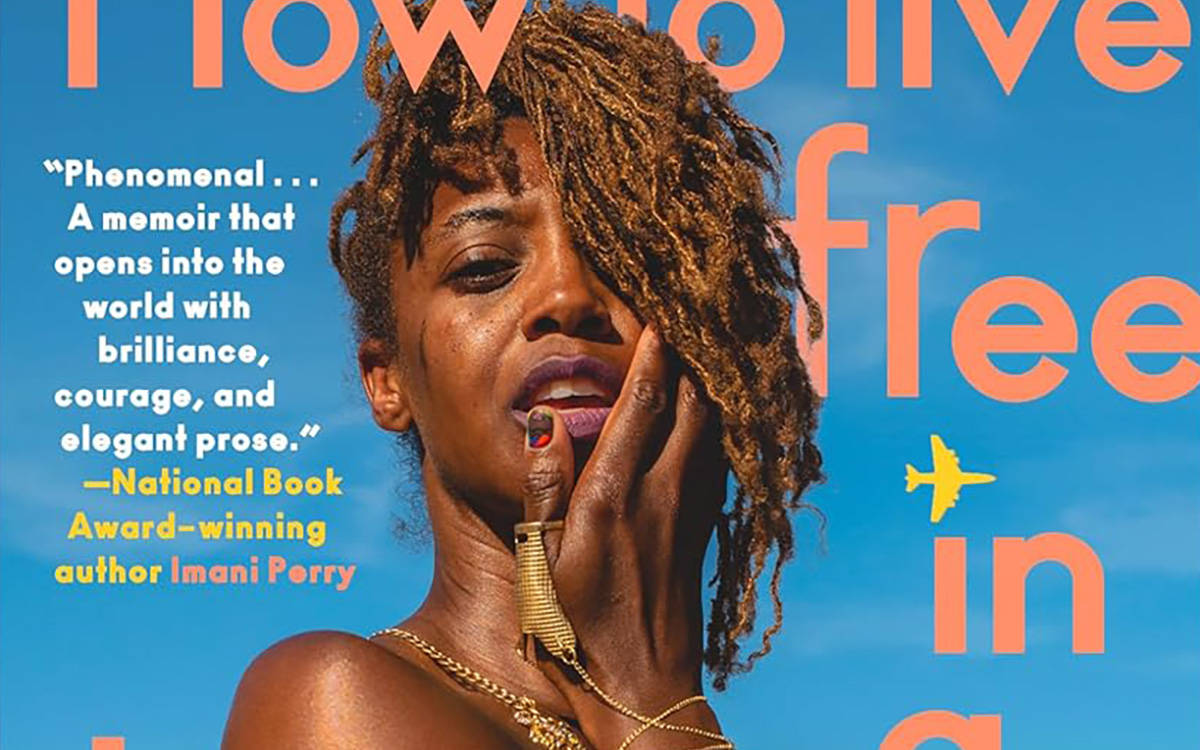
‘How to Live Free in a Dangerous World: A Decolonial Memoir’
By Shayla Lawson
c.2024, Tiny Reparations Books
$29/320 pages
Do you really need three pairs of shoes?
The answer is probably yes: you can’t dance in hikers, you can’t shop in stilettos, you can’t hike in clogs. So what else do you overpack on this long-awaited trip? Extra shorts, extra tees, you can’t have enough things to wear. And in the new book “How to Live Free in a Dangerous World” by Shayla Lawson, you’ll need to bring your curiosity.

Minneapolis has always been one of their favorite cities, perhaps because Shayla Lawson was at one of Prince’s first concerts. They weren’t born yet; they were there in their mother’s womb and it was the first of many concerts.
In all their travels, Lawson has noticed that “being a Black American” has its benefits. People in other countries seem to hold Black Americans in higher esteem than do people in America. Still, there’s racism – for instance, their husband’s family celebrates Christmas in blackface.
Yes, Lawson was married to a Dutch man they met in Harlem. “Not Haarlem,” Lawson is quick to point out, and after the wedding, they became a housewife, learned the language of their husband, and fell in love with his grandmother. Alas, he cheated on them and the marriage didn’t last. He gave them a dog, which loved them more than the man ever did.
They’ve been to Spain, and saw a tagline in which a dark-skinned Earth Mother was created. Said Lawson, “I find it ironic, to be ordained a deity when it’s been a … journey to be treated like a person.”
They’ve fallen in love with “middle-American drag: it’s the glitteriest because our mothers are the prettiest.” They changed their pronouns after a struggle “to define my identity,” pointing out that in many languages, pronouns are “genderless.” They looked upon Frida Kahlo in Mexico, and thought about their own disability. And they wish you a good trip, wherever you’re going.
“No matter where you are,” says Lawson, “may you always be certain who you are. And when you are, get everything you deserve.”
Crack open the front cover of “How to Live Free in a Dangerous World” and you might wonder what the heck you just got yourself into. The first chapter is artsy, painted with watercolors, and difficult to peg. Stick around, though. It gets better.
Past that opening, author Shayna Lawson takes readers on a not-so-little trip, both world-wide and with observant eyes – although it seems, at times, that the former is secondary to that which Lawson sees. Readers won’t mind that so much; the observations on race, beauty, love, the attitudes of others toward America, and finding one’s best life are really what takes the wheel in this memoir anyhow. Reading this book, therefore, is not so much a vacation as it is a journey of discovery and joy.
Just be willing to keep reading, that’s all you need to know to get the most out of this book. Stick around and “How to Live Free in a Dangerous World” is what to pack.
The Blade may receive commissions from qualifying purchases made via this post.
Books
Story of paralysis and survival features queer characters
‘Unswerving: A Novel’ opens your eyes and makes you think
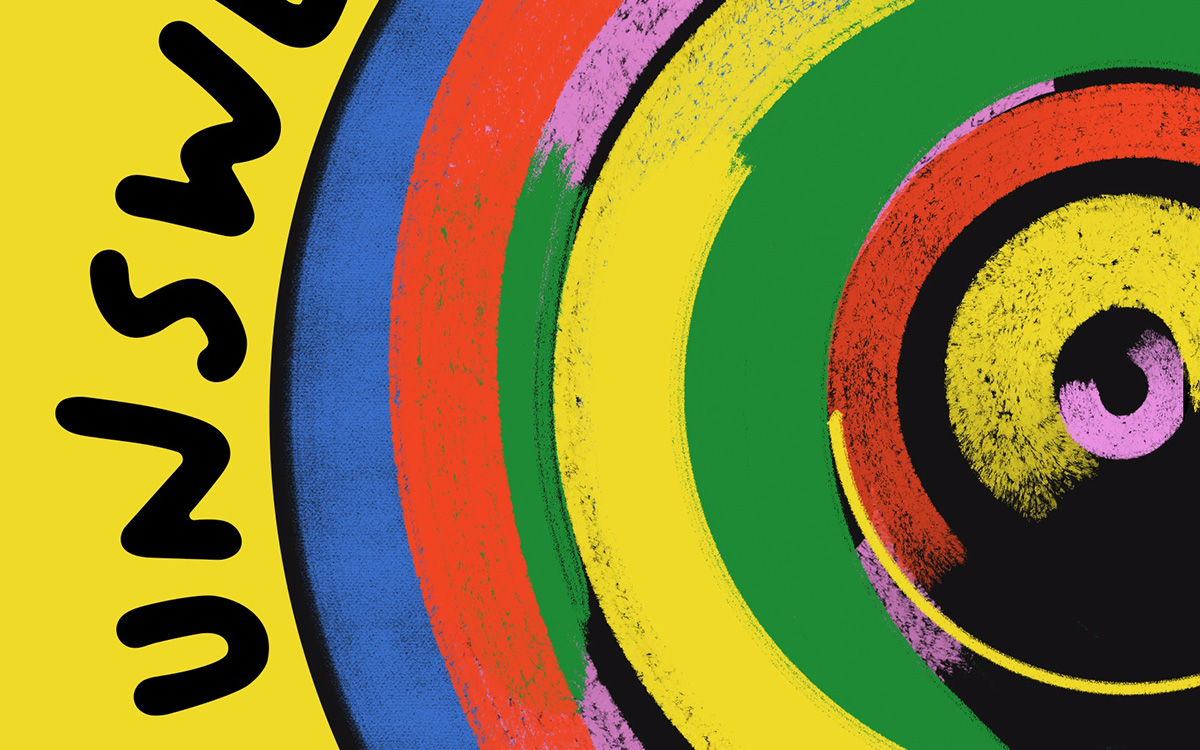
‘Unswerving: A Novel’
By Barbara Ridley
c.2024, University of Wisconsin Press
$19.95 / 227 pages
It happened in a heartbeat.
A split-second, a half a breath, that’s all it took. It was so quick, so sharp-edged that you can almost draw a line between before and after, between then and now. Will anything ever be the same again? Perhaps, but maybe not. As in the new book “Unswerving” by Barbara Ridley, things change, and so might you.

She could remember lines, hypnotizing yellow ones spaced on a road, and her partner, Les, asleep in the seat beside her. It was all so hazy. Everything Tave Greenwich could recall before she woke up in a hospital bed felt like a dream.
It was as though she’d lost a month of her life.
“Life,” if you even wanted to call it that, which she didn’t. Tave’s hands resembled claws bent at the wrist. Before the accident, she was a talented softball catcher but now she could barely get her arms to raise above her shoulders. She could hear her stomach gurgle, but she couldn’t feel it. Paralyzed from the chest down, Tave had to have help with even the most basic care.
She was told that she could learn some skills again, if she worked hard. She was told that she’d leave rehab some day soon. What nobody told her was how Les, Leslie, her partner, girlfriend, love, was doing after the accident.
Physical therapist Beth Farringdon was reminded time and again not to get over-involved with her patients, but she saw something in Tave that she couldn’t ignore. Beth was on the board of directors of a group that sponsored sporting events for disabled athletes; she knew people who could serve as role models for Tave, and she knew that all this could ease Tave’s adjustment into her new life. It was probably not entirely in her job description, but Beth couldn’t stop thinking of ways to help Tave who, at 23, was practically a baby.
She could, for instance, take Tave on outings or help find Les – even though it made Beth’s own girlfriend, Katy, jealous.
So, here’s a little something to know before you start reading “Unswerving”: author Barbara Ridley is a former nurse-practitioner who used to care for patients with spinal cord injuries. That should give readers a comfortable sense of satisfaction, knowing that her experiences give this novel an authenticity that feels right and rings true, no faking.
But that’s not the only appeal of this book: while there are a few minor things that might have readers shaking their heads (HIPAA, anyone?), Ridley’s characters are mostly lifelike and mostly likable. Even the nasties are well done and the mysterious character that’s there-not-there boosts the appeal. Put everyone together, twist a little bit to the left, give them some plotlines that can’t ruined by early guessing, and you’ve got a quick-read novel that you can enjoy and feel good about sharing.
And share you will because this is a book that may also open a few eyes and make readers think. Start “Unswerving” and you’ll (heart) it.
The Blade may receive commissions from qualifying purchases made via this post.
Books
Examining importance of queer places in history of arts and culture
‘Nothing Ever Just Disappears’ shines with grace and lyrical prose
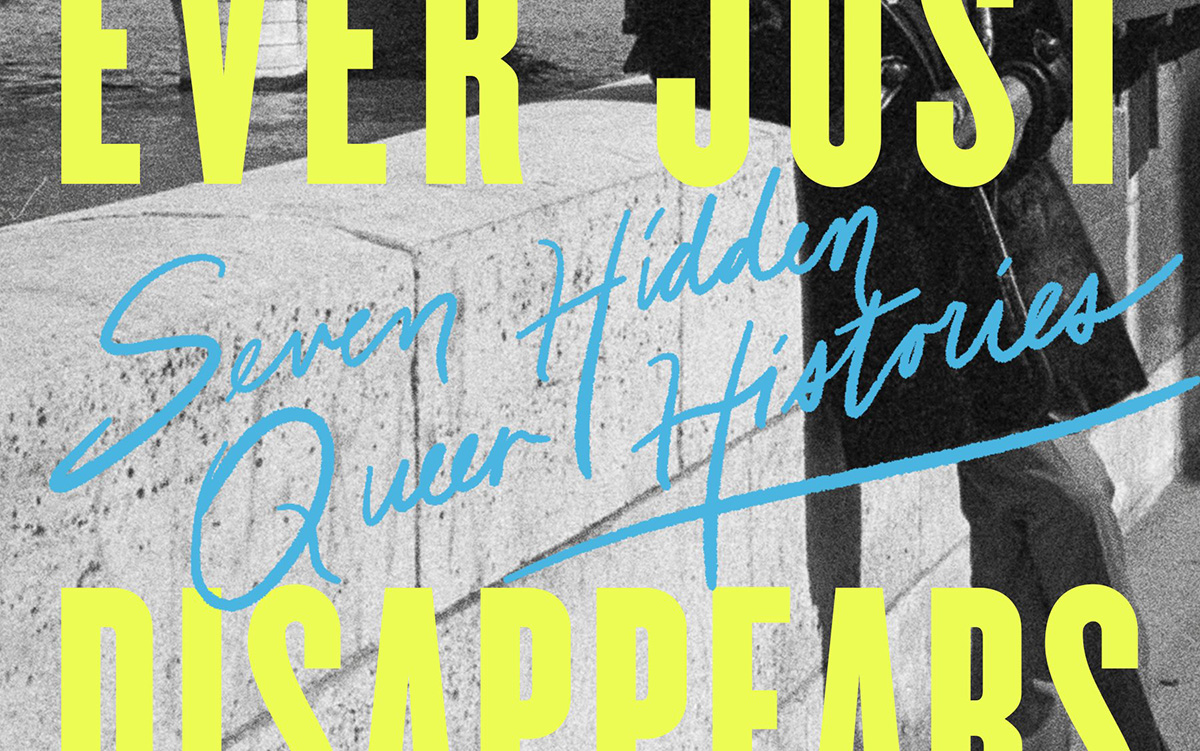
‘Nothing Ever Just Disappears: Seven Hidden Queer Histories’
By Diarmuid Hester
c.2024, Pegasus Books
$29.95/358 pages
Go to your spot.
Where that is comes to mind immediately: a palatial home with soaring windows, or a humble cabin in a glen, a ramshackle treehouse, a window seat, a coffeehouse table, or just a bed with a special blanket. It’s the place where your mind unspools and creativity surges, where you relax, process, and think. It’s the spot where, as in the new book “Nothing Ever Just Disappears” by Diarmuid Hester, you belong.

Clinging “to a spit of land on the south-east coast of England” is Prospect Cottage, where artist and filmmaker Derek Jarman lived until he died of AIDS in 1994. It’s a simple four-room place, but it was important to him. Not long ago, Hester visited Prospect Cottage to “examine the importance of queer places in the history of arts and culture.”
So many “queer spaces” are disappearing. Still, we can talk about those that aren’t.
In his classic book, “Maurice,” writer E.M. Forster imagined the lives of two men who loved one another but could never be together, and their romantic meeting near a second-floor window. The novel, when finished, “proved too radical even for Forster himself.” He didn’t “allow” its publication until after he was dead.
“Patriarchal power,” says Hester, largely controlled who was able to occupy certain spots in London at the turn of the last century. Still, “queer suffragettes” there managed to leave their mark: women like Vera Holme, chauffeur to suffragette leader Emmeline Pankhurst; writer Virginia Woolf; newspaperwoman Edith Craig, and others who “made enormous contributions to the cause.”
Josephine Baker grew up in poverty, learning to dance to keep warm, but she had Paris, the city that “made her into a star.” Artist and “transgender icon” Claude Cahun loved Jersey, the place where she worked to “show just how much gender is masquerade.” Writer James Baldwin felt most at home in a small town in France. B-filmmaker Jack Smith embraced New York – and vice versa. And on a personal journey, Hester mourns his friend, artist Kevin Killian, who lived and died in his beloved San Francisco.
Juxtaposing place and person, “Nothing Ever Just Disappears” features an interesting way of presenting the idea that both are intertwined deeper than it may seem at first glance. The point is made with grace and lyrical prose, in a storyteller’s manner that offers back story and history as author Diarmuid Hester bemoans the loss of “queer spaces.” This is really a lovely, meaningful book – though readers may argue the points made as they pass through the places included here. Landscapes change with history all the time; don’t modern “queer spaces” count?
That’s a fair question to ask, one that could bring these “hidden” histories full-circle: We often preserve important monuments from history. In memorializing the actions of the queer artists who’ve worked for the future, the places that inspired them are worth enshrining, too.
Reading this book may be the most relaxing, soothing thing you’ll do this month. Try “Nothing Ever Just Disappears” because it really hits the spot.
The Blade may receive commissions from qualifying purchases made via this post.
-

 District of Columbia2 days ago
District of Columbia2 days agoReenactment of first gay rights picket at White House draws interest of tourists
-

 District of Columbia2 days ago
District of Columbia2 days agoNew D.C. LGBTQ+ bar Crush set to open April 19
-

 Arizona2 days ago
Arizona2 days agoAriz. governor vetoes anti-transgender, Ten Commandments bill
-

 Africa4 days ago
Africa4 days agoUgandan activists appeal ruling that upheld Anti-Homosexuality Act



